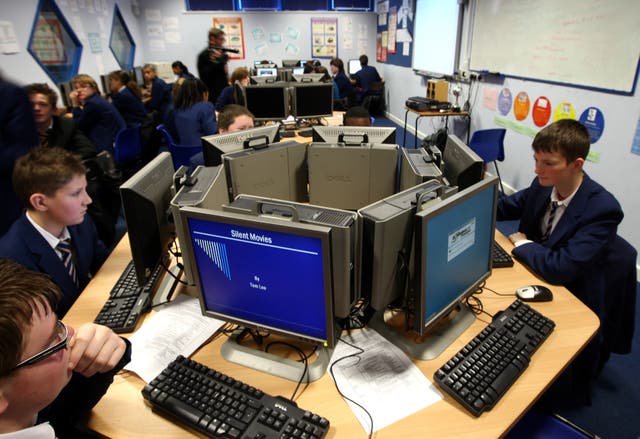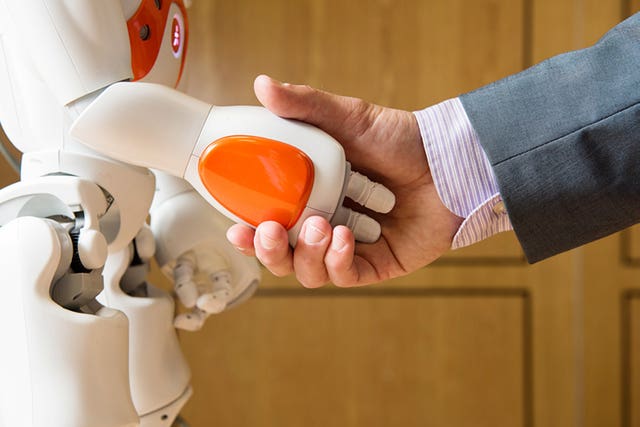
Technology is now a key part of everyday school life, but a poll suggests that when it comes to who is standing at the front of the classroom, teenagers would still rather be taught by a human teacher than a robot.
A small-scale survey of sixth-formers indicates that most do not think that artificial intelligence (AI) can produce a better teacher than a human being, with many rating their personal relationships with teachers as important.
It also suggests that some youngsters are worried that AI may make it harder to get a job in the future.
The poll, commissioned by the Headmasters’ and Headmistresses’ Conference (HMC), comes amid growing debate about how new technologies – such as AI and virtual reality – can be used to support teaching and learning in a 21st century school.

There have been suggestions that this type of technology could be used in different areas of education such as creating tailored class materials for students, personalised tutoring for individual students or helping with admin tasks.
Overall, more than eight in 10 (83%) of the 500 sixth-formers polled did not think that a robot could be a better teacher than a human being.
And when asked how they felt about having a robot as a teacher, two-thirds (66%) said “give me a human every time”, while one in eight (12%) were excited by the opportunities this could bring and just over a fifth (22%) were neutral on the subject.
Those polled were also asked, on a scale of one to 100, how important the personal relationship they have with their teacher is to them. The average response was 82.
More than a third (38%) thought they knew more about AI and its uses than their teachers, while 62% said they did not.
Just over one in 10 (11%) said their school is already using AI in some form.
Over two in five (43%) agreed they are worried it may be harder for them to get a job because AI is taking over in many areas, while more than one in four (28%) said the rise of AI has affected the career they are thinking of pursuing.

Chris King, HMC chair and head of Leicester Grammar School, said: “Nothing can replace the magic that happens when an enthusiastic teacher and a willing pupil are in the room together. It is gratifying that pupils value the human relationship with their teachers and care is needed to make sure that it is never compromised.
“Whilst exciting developments are taking place, we will have to wait a long time for robots to be able to empathise with teenagers and draw on their own experience to bring a subject alive. Teaching is much more than passing on information.
“However, much of the concern pupils are showing could be fear of the unknown. AI has huge possibilities for adding richness to pupils’ experience, personalising their learning and freeing up teachers to do what really matters.”
He added: “Adults and children are learning about this together and it’s important that we all pay more attention to this area to understand how best to use AI in education and prepare pupils for a world in which it is commonplace.”
HMC, which represents more than 300 private schools in the UK and abroad, is due to discuss AI at its spring conference in London later this week.
The online SurveyMonkey poll questioned around 500 sixth-formers in state and independent schools in April.


Comments: Our rules
We want our comments to be a lively and valuable part of our community - a place where readers can debate and engage with the most important local issues. The ability to comment on our stories is a privilege, not a right, however, and that privilege may be withdrawn if it is abused or misused.
Please report any comments that break our rules.
Read the rules hereLast Updated:
Report this comment Cancel